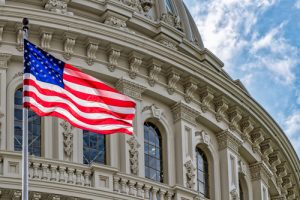
U.S. Rep. Tom Reed (R-NY) has introduced a bipartisan bill to make certain improvements to the New Markets Tax Credit Program (NMTC), which provides an incentive for investment in America’s low-income communities. Without congressional action, the NMTC is set to expire on Dec. 31.
Rep. Reed introduced the New Markets Stabilization Act, H.R. 8965, with bill sponsor U.S. Rep. Terri Sewell (D-AL) to ensure the NMTC continues to spur economic recovery during the ongoing COVID-19 pandemic.
“COVID-19 has impacted every corner of our economy, especially traditionally underserved communities and the financial organizations that support them,” Rep. Reed said on Monday. “Given the critical role New Market Tax Credits can play in driving economic recovery and reducing poverty, it is only fair that we move to stabilize the program and provide investors with the additional flexibility they need to further incentivize emergency relief initiatives.”
If enacted, H.R. 8965 would increase the NMTC allocation by $3.5 billion over four years; allow investors to carryback these credits for five years; and exempt the NMTC from the 75 percent General Business Credit limitation, among other provisions, according to a bill summary provided by Rep. Reed’s office.
In March 2019, Reps. Reed and Sewell also introduced the bipartisan, bicameral New Markets Tax Credit Extension Act of 2019, H.R. 1680, which would make the NMTC permanent.
U.S. Sens. Roy Blunt (R-MO) and Ben Cardin (D-MD) introduced the identical S. 750 in their chamber, where 36 other senators have signed on as cosponsors. Both bills remain under committee consideration in their respective chambers.



